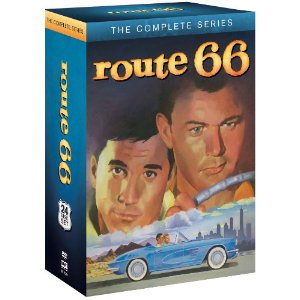Wayne
Hicks'
Standup Comedy Blog


* Classic & Current
Television Blog *
BIG RATINGS, STILL CANCELLED
That post related to All In The Family reminded me of a brief time in the early-1970s when a new TV show could be ranked firmly in the top ten and still get cancelled - that's if the show was following All In The Family and failed to hold on to enough of that number one show's audience.
For instance in 1971 a program called Funny Face filled the 8:30 Saturday night slot on CBS. This perky sitcom starred Sandy Duncan, it was the number 8 show in the nation when CBS canned it. Problem was there was a ten point drop in the ratings when Funny Face aired. They felt a stronger show could hold on to more viewers and lead to better ratings for The Mary Tyler Moore Show that followed.
Still, with numbers like that, CBS felt the production could be salvaged after a retooling. This all happened after the star had an eye operation to remove a benign tumor.
For some reason the nation became intensely interested in this eye operation and in Sandy Duncan. She appeared on all the talk shows to chat about it while she recovered and her series was being readied. (A punk group in LA named their band Sandy Duncan's Eye in the 1990s.)
For 1971, Sandy Duncan earned an Emmy nomination for Outstanding Continued Performance By An Actress In A Leading Role In A Comedy Series. Considering that and the ratings Funny Face garnered, CBS felt their revamped program, now called The Sandy Duncan Show, was a sure hit for the fall of 1972 in the Sunday night at 8:30 slot behind another newbie, M*A*S*H. Neither made the top 30. CBS decided to stick it out with M*A*S*H and let the Duncan program go in December.
Bridget Loves Bernie followed All in the Family in the fall of 1972 and became the number 5 show in the nation. Even that wasn't good enough for CBS so Bridget Loves Bernie was dropped at season's end and entered the history books as the highest-rated television program ever to be canceled. It certainly didn't help that the show attracted howls of protests from religious groups.
The network finally found what they were looking for when they moved M*A*S*H into the 8:30 Saturday slot in the fall of 1973. The new timeslot turned out to be a bonanza for all concerned, M*A*S*H shot from relative obscurity to the number 4 show in the nation and solidified CBS' hold on Saturday nights.
It worked so well the next season CBS was able to move M*A*S*H to Tuesday nights after Good Times where the ratings success continued. That left the Saturday at 8:30 slot open in the fall of 1974 when Paul Sand in Friends and Lovers debuted to high expectations. This sitcom about a bass violinist in the Boston Symphony Orchestra from The Mary Tyler Moore Show folks proved to be another stiff, ending the season in January at number 25.
In 1975 CBS began moving All in the Family around the schedule to bolster other nights where weak spots existed before settling in on Sundays. Although still edging the top ten, the show's ratings by 1978 had fallen lower than Funny Face's numbers were a few years earlier.
Thursday, May 20, 2010 - 8:16am
WOULD YOU
LIKE TO RESPOND?
LOOK WHO'S BACK
On CBS this fall - a new version of Hawaii Five-O starring with Daniel Dae Kim from Lost. William Shatner stars in his first sitcom called "(Bleep) My Dad Says" about an opinionated father made famous through internet social networks. Cancelled: The New Adventures of Old Christine, Ghost Whisperer, Cold Case, Miami Medical, Numb3rs, Gary Unmarried and Accidentally on Purpose.
Wednesday, May 19, 2010 - 11:34am
WOULD YOU
LIKE TO RESPOND?
OVERHEARD CONVERSATION
Here we go again with another conversation with one of the greats of television - Listen to it here.
I talked with Bob Mills, one of Bob Hope's writers, for an oral history I'm working on. Because I can't use this otherwise, I'll let you listen in on our conversation.
Bob Mills talks about the legendary Bob Hope and how he got his start in show business, gained a foothold in radio and then transitioned into movies and TV. He also relates the story of the first time Hope told a joke onstage and what a profound experience it was for him.
Bob has written a seminal book THE LAUGH MAKERS: A Behind-the-Scenes Tribute to Bob Hope's Incredible Gag Writers about his time with Bob Hope and it's a real step back in time.
Today in BestofTVblog - - The latest entertainment news - and the top 30 rated TV shows last week.
Wednesday, May 19, 2010 - 7:40am
WOULD YOU
LIKE TO RESPOND?
HOW A FORBIDDEN WORD REENTERED
OUR VOCABULARY VIA TELEVISION
Growing up in the South decades ago I never imagined that the "N" word would ever re-enter the vernacular. I suppose it was inevitable in some way. It was the only truly forbidden word in the English language and the inherent shock value was too much to resist.
NBC was the first broadcast network to officially ban the epitath from the airwaves back in the 1950s. Although, in all fairness, I can't find a single example of "nigger" being used on any TV network before that point or after.
The word had turned up very, very infrequently in TV dramas on TV but if I white person said it, he had to seriously renounce his past or die at the end of the piece.
Just weeks after All In The Family debuted in 1971, Sammy Davis Jr. used the word - tossed it off really - when he quipped, "If you were prejudiced, Archie, when I came into your home, you would have called me a coon or a nigger. But you didn't say that, I heard you clear as a bell. You came right out and called me colored."
Believe it or not, Archie Bunker never used the "N" word although more antiquated colloquialisms like "coon," "colored," and "black beauties" were heard in abundance.
But it was a January 4, 1974 broadcast of NBC's Sanford & Son ("Mama's Baby, Papa's Maybe") that thrust the "N" word on to network TV in a big way. On that show 'Big Money' Grip Murdoch confronted Aunt Ester with his theory that he was Lamont's father. I'll let you see it for yourself:
A month later, on the episode of All In The Family where The Jeffersons spinoff was previewed, George Jefferson used the word for comic effect after meeting a mixed race couple, "Listen to them Louise. That's what's happens when you mix black and white. Ten more seconds, he's going to call her nigger."
After being featured as a big laugh getter on the two top-rated sitcoms in the nation, the "N" word became somewhat safe for television comedy after that - so long as a black person said it.
It was a quick jump from primetime to young musicians who also recognized the power of the forbidden. Suddenly it was a big problem for blacks to be using the word "nigger" in songs about a life lived without laugh tracks; okay for TV sitcoms but not for the radio or for record albums that now had to be labeled as 'mature.' Funny thing that. Myself, I'd rather the word had disappeared altogether but here we are.
Tuesday, May 18, 2010 - 11:47am
WOULD YOU
LIKE TO RESPOND?
TELEVISION BLOG
so we can continue this work!
Amazon Prime - unlimited streaming
of your fave TV shows and movies!
Get your FREE 30 Day Trial!
PR4 & PR5 Pages for Advertising
|
|
|
|
|



